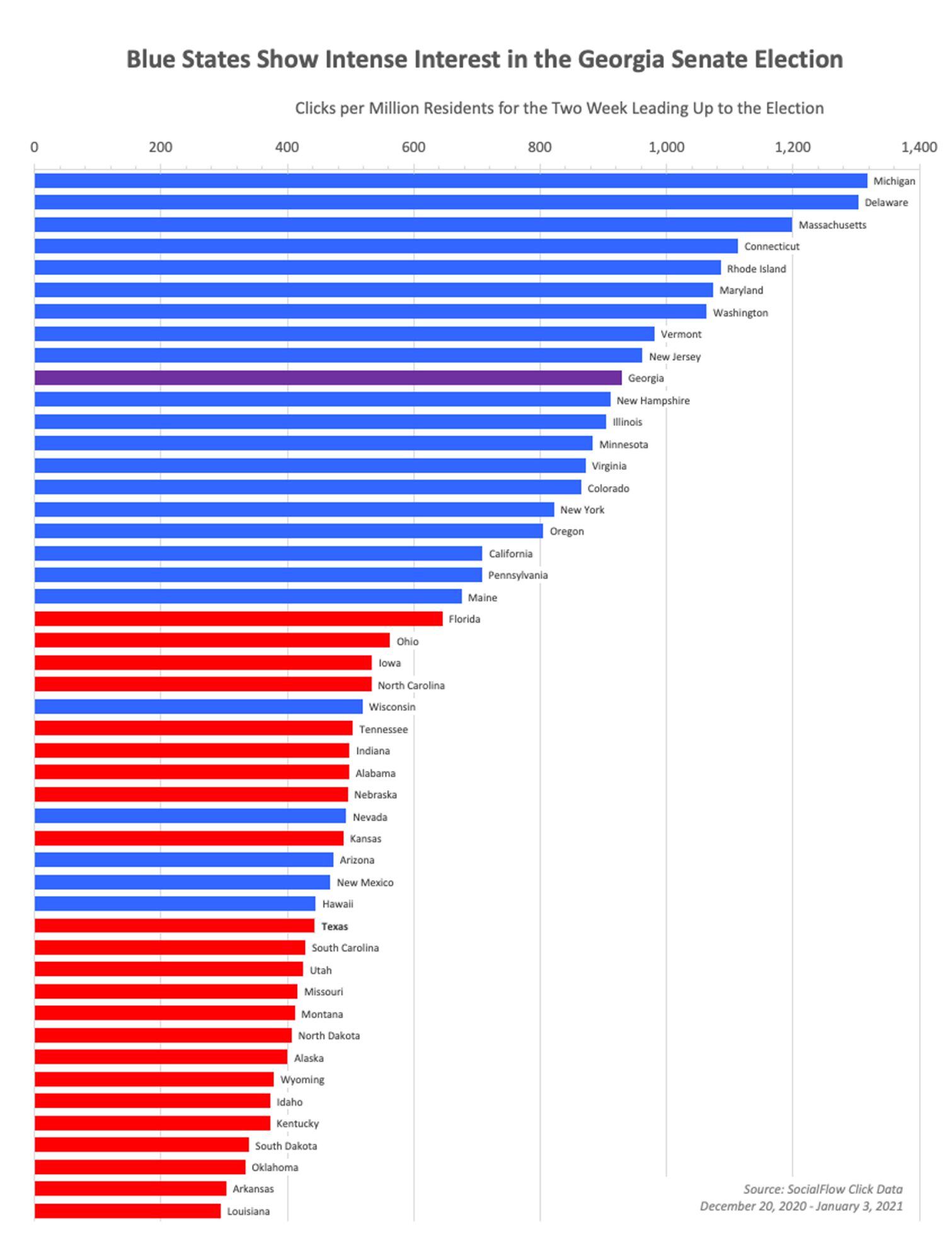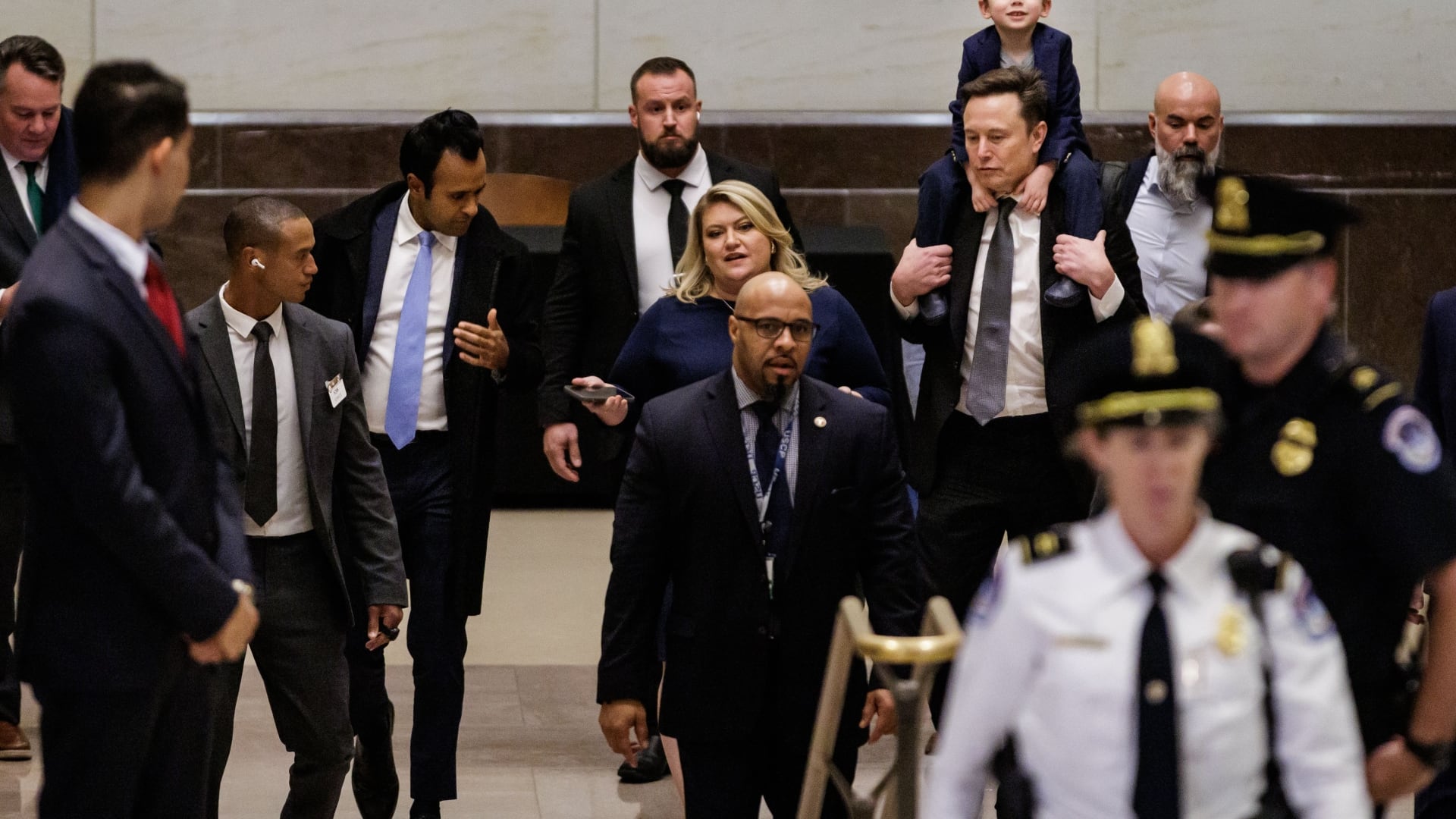When it comes to online story engagement, people in blue states are far more likely to be interested in the Georgia runoffs than those in red states, according to SocialFlow data exclusively provided to Cheddar.
SocialFlow tracked clicks per million residents on runoff-related stories in the two weeks leading up to the election, which will ultimately decide which political party will control the Senate.
Michigan ranked number one with approximately 1,300 clicks per million residents. The first red state to make the list was Florida, coming in at number 21 with less than 700. Louisiana, another red state, came in last place with less than 400.
For comparison, Georgia itself ranked number 10 with about 900 clicks per million.
Jim Anderson, CEO of SocialFlow, noted that blue states tend to click more on all media content than red states. However, the Georgia data is significant considering the state didn't come in first place.
"It's just sort of fascinating to see there's such a strong blue interest in this, and I suspect it's all about the Senate control, which clearly has national implications," Anderson told Cheddar Tuesday.
Anderson, a Georgia native, added the state's lower-than-expected position may be due to residents simply wanting to be done with the process.
"My Facebook feed is full of posts from my friends in Georgia saying 'I'm just exhausted by all the political advertising,'" Anderson said. "I think they just want it to be over. Because if you are in Georgia and everybody's looking at you and everybody is trying to get your attention and everybody is trying to convince you that their candidate is better than the others, I think there's a definite sense of fatigue from people who live there in Georgia."













